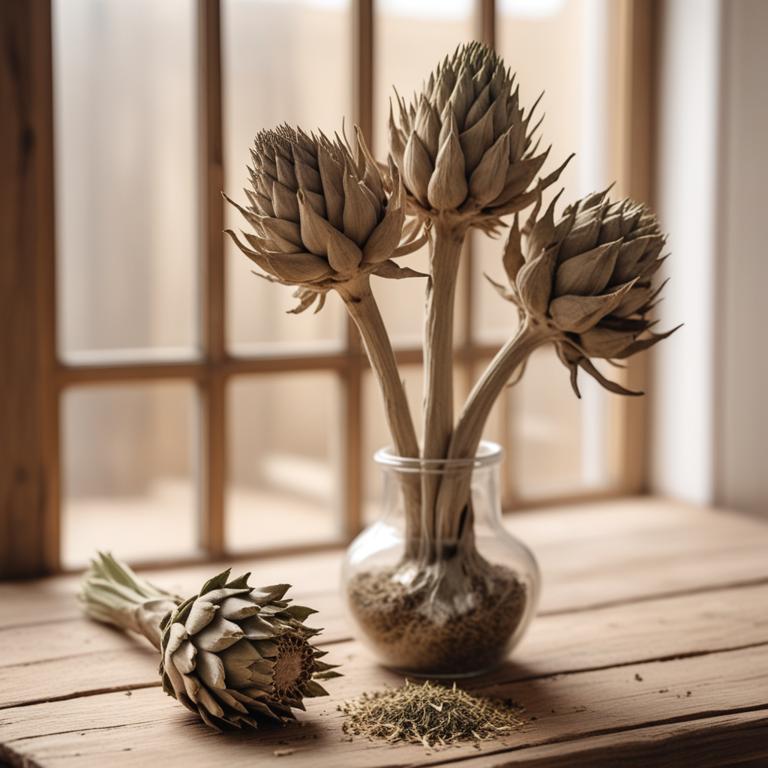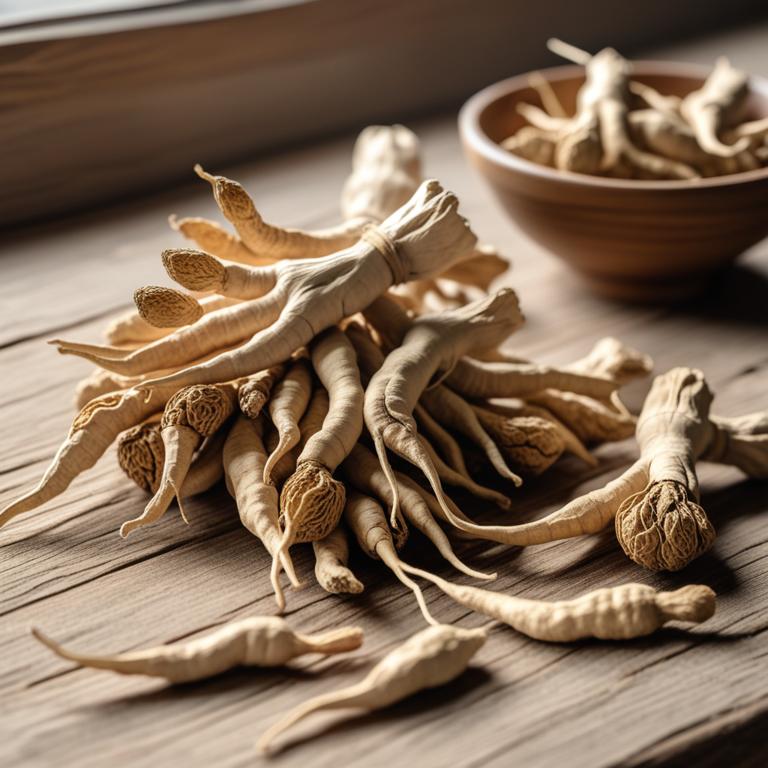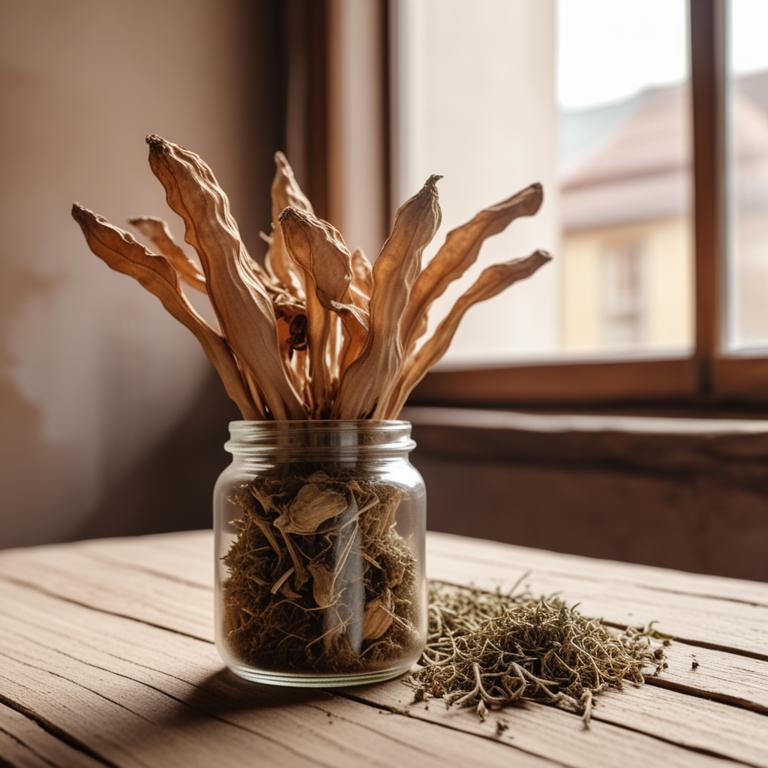Updated: Dec 1, 2024
Causes and Cures for Jet Lag Using Herbal Preparations

Jet lag is a common problem that affects people who travel across different time zones.
It can leave you feeling tired, grumpy, and out of sorts, making it hard to enjoy your trip or get back into your daily routine. So, what causes jet lag?. Essentially, it's your body's internal clock getting confused by the sudden change in time. When you travel to a new time zone, your body has to adjust to the new rhythm of light and darkness, which can take some time. Herbal remedies can help alleviate the symptoms of jet lag. Herbs like ashwagandha and valerian root are natural stress-relievers that can help calm your mind and body.
They also promote better sleep, which is essential when you're trying to adjust to a new time zone. Another herb that comes to mind is melatonin, which helps regulate your body's internal clock. It's often taken as a supplement, but it can also be found in herbal teas. If you're looking for a more natural way to combat jet lag, try sipping on a warm cup of valerian root tea or ashwagandha tea before bed. These teas can help you relax and prepare your body for a good night's sleep. You can also try taking a melatonin supplement, but be sure to talk to a healthcare professional before doing so.
By incorporating these herbal remedies into your travel routine, you may find it easier to adjust to new time zones and enjoy your travels without the fatigue and grumpiness that often comes with jet lag.
Table of Contents
What causes people to experience jet lag?
The main causes of jet lag are several factors that disrupt our body's internal clock.
Time Change is a significant contributor, as our body adjusts to a new time zone. When we travel to a different time zone, our internal clock, also known as our circadian rhythm, tries to adjust to the new local time. However, our body's internal clock can't adjust immediately, leading to a lag. Crossing Time Zones is another cause, as every time zone change means a different local time. This makes it harder for our body to adjust, especially if we travel across multiple time zones.
Sleep Schedule is also a significant factor, as our body needs time to adjust to the new sleep-wake cycle of the destination. If we don't get enough sleep or have an irregular sleep schedule, it can exacerbate jet lag. Our Circadian Rhythm is controlled by our body's internal clock, which regulates our sleep-wake cycle. When this rhythm is disrupted, it can lead to fatigue, headaches, and other symptoms of jet lag. Travel Distance is not a direct cause of jet lag, but it can contribute to the severity of symptoms.
The longer the travel distance, the more time zones we cross, and the harder it is for our body to adjust.
What are the benefits of utilizing herbs as a remedy for jet lag?
Using herbs to help with jet lag can be really helpful.
One of the main benefits is that they can help regulate your body's internal clock, which gets disrupted when you travel across time zones. This can lead to problems like difficulty falling asleep, insomnia, and fatigue.
The herbs can help adjust your body's rhythm to the new time zone, making it easier to sleep and feel rested. They can also help reduce stress and anxiety caused by jet lag, which can be a major contributor to its symptoms. Additionally, some herbs can even help alleviate symptoms like headaches and digestive issues that often come with jet lag.
By using herbs, you can help your body recover from the effects of traveling and get back to a normal routine more quickly.
What herbs are most effective in treating jet lag medically?

When traveling across time zones, jet lag can disrupt our sleep patterns and make us feel tired and groggy.
Herbs can help alleviate these symptoms. Valeriana officinalis, also known as valerian root, is a natural relaxant that promotes better sleep quality. It contains compounds that calm the nervous system and help us fall asleep faster. Melissa officinalis, or lemon balm, is another herb that can aid sleep. It has a soothing effect and reduces stress, making it easier to relax before bed. Its antispasmodic properties also help with muscle cramps and spasms, common issues for people with jet lag. Lavandula angustifolia, or lavender, has a calming scent that can help regulate our sleep-wake cycles.
It reduces anxiety and promotes relaxation, making it easier to fall asleep and stay asleep. When we're on a long-haul flight or a time zone change, lavender can help us unwind and adjust to our new environment. Zingiber officinale, or ginger, is a natural anti-inflammatory that can help alleviate nausea and digestive issues often caused by jet lag. Its antispasmodic properties also ease muscle cramps and spasms, making it easier to adjust to our new environment. Passiflora incarnata, or passionflower, is a herb that has been used for centuries to treat insomnia and anxiety. Its sedative properties help regulate our sleep patterns and promote relaxation, making it easier to fall asleep and stay asleep. Its calming effects can also reduce stress and anxiety caused by jet lag. These herbs can be consumed as teas, supplements, or added to our meals to help alleviate jet lag symptoms.
By incorporating them into our routine, we can reduce the effects of jet lag and make our travels easier.
What are the top herbal treatments for jet lag?

When traveling across different time zones, jet lag can be a real problem.
Herbal preparations can help you adjust to the new time and feel more comfortable. One way to get the benefits of herbs is by taking them in capsule form. Capsules of herbs like melatonin, valerian root, and passionflower can help your body adjust to the new time. You can also use a tincture, which is a concentrated liquid extract of herbs.
Tinctures like valerian root and ginkgo biloba can help you relax and feel more alert at the right time. Another way to get the benefits of herbs is by making a decoction. A decoction is a strong liquid made by boiling herbs in water. Decoctions like peppermint and ginger can help calm your stomach and reduce nausea that comes with traveling. Herbal teas and infusions are also great for helping with jet lag.
Herbal teas like chamomile and lavender can help you relax and fall asleep at the right time, while infusions like peppermint and lemon balm can help you feel more alert and focused during the day.
Additional Resources:
What herbs should be kept away from if you have jet lag?
If you have jet lag, it's best to avoid certain herbs that can make it harder to adjust to a new time zone.
Ginkgo biloba, for instance, can increase alertness and energy, but it can also disrupt your sleep patterns and make it harder to fall asleep at night. This can be especially problematic when you're trying to adjust to a new time zone. Ephedra sinica is another herb to steer clear of, as it's a stimulant that can cause jitters and make it difficult to relax.
Panax ginseng can have a similar effect, increasing energy and alertness but also interfering with sleep. Catha edulis, also known as khat, is a stimulant that can cause anxiety and make it hard to wind down at night. Schisandra chinensis, while often used for its adaptogenic properties, can also increase energy and make it harder to adjust to a new sleep schedule.
These herbs might seem like a quick fix for jet lag, but they can actually make it harder to adjust to a new time zone, leading to more fatigue and discomfort in the long run.
FAQ
Are there any specific herbs that can prevent jet lag?
Some herbs like ashwagandha, melatonin-rich valerian root, and ginkgo biloba may help alleviate jet lag symptoms.
Ashwagandha can aid in stress adaptation, while valerian root can promote relaxation and sleep. Ginkgo biloba may improve circulation and reduce fatigue.
These herbs can be taken in supplement form, but it's essential to follow the recommended dosages.
Is it safe to use herbal remedies for jet lag during pregnancy?
It's best to be cautious when using herbal remedies for jet lag during pregnancy.
Some herbs, like valerian and passionflower, can relax the body, but they may also cause drowsiness. Other herbs, like ginger, can help with nausea, but they may interact with other medications.
It's essential to understand the potential risks.
Are there any herbs that can reduce the frequency of jet lag?
Some herbs like ashwagandha and valerian root might help reduce jet lag symptoms.
They're known for their calming effects, which can aid in adjusting to a new time zone. Ashwagandha, for example, helps regulate the body's internal clock, while valerian root promotes relaxation and better sleep.
This can make it easier to cope with jet lag.
Can i combine different herbal remedies for jet lag?
You can combine different herbal remedies for jet lag, but use them wisely.
For example, you might take valerian root to promote sleep, and ginseng to help you feel alert in the morning.
Just be sure to start with small amounts and adjust as needed.
Related Articles

Eye Pain Treatment: Exploring Medicinal Herbs and Herbal Preparations

Overcoming Lost Voice: Causes, Medicinal Herbs, and Herbal Preparations for Fast Recovery

Natural Remedies for Sleep Deprivation: Causes, Medicinal Herbs, and Herbal Preparations

Dizziness: Causes, Symptoms, and Natural Relief with Medicinal Herbs and Preparations

Motion Sickness Causes and Medicinal Herbs for Relief






